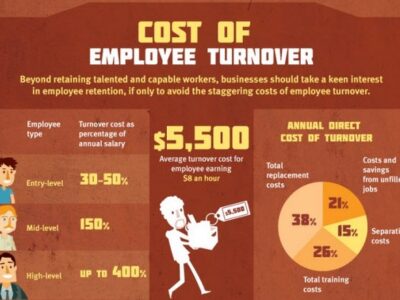Ever been caught off guard when someone asks ‘So, what do you do?’ You’re not alone – you just need to work on your elevator pitch.
An elevator pitch is a brief speech (think 30 seconds to two minutes) that many people have in their back pocket whenever someone asks what they do and how they can benefit others with their work. They’re often used in business settings, networking events, job interviews, and any situation where you need to make a strong first impression.
What then goes into a good elevator pitch? By including the five elements below, you’ll know how to write an elevator pitch that will help you find success.
5 Elements of a Good Elevator Pitch
(1) Demonstrate your credibility
Business professionals hear elevator pitches all the time. Make your pitch stand out from others by knowing your audience and tailoring your speech to them. Have an understanding of what your prospective audience wants or needs in an employee. One can do this by being sure to include transferable hard or soft skills that you see commonly sought after in job descriptions.
Take, for example, a person who’s giving their elevator pitch to an accounting manager. Let’s say this person had experience in childcare. There certainly are some transferable soft skills this individual could use in their elevator pitch. However, it isn’t necessarily the most relevant experience. A more relevant hard skill you could mention is your experience in your college’s student government association as a treasurer, which establishes your credibility.
(2) Leave them wanting more
Elevator pitches are meant to be short – no longer than two minutes. Be sure to include the most relevant information upfront, but don’t reveal too much. Strategically leaving out certain information will leave the person you are talking to with unanswered questions that will beg for a follow-up.
(3) Have a call to action
Encourage the people who you are speaking with to follow up with you. A call to action can be integrated into a variety of ways including the exchange of business cards, or some verbal phrase or saying that gets the attention of the person you are speaking with. Be upfront with what you are seeking, as this will let the other person know how they may assist you in the future.
(4) Be natural
As much as you may want to impress the person you are speaking with, don’t be overzealous. People often get too caught up in the moment and may imply they have more experience in one area than they do. Later, they might then be called upon to use this skill. An example of this could be stating you were very familiar with a software program that a company uses. When in fact, you only have a basic understanding of this software program.
If all your skills aren’t to the standard you state they are, this will hurt your creditability and could get you into a sticky situation. Therefore, be natural and genuine with everything you say.
(5) Test yourself
There is always room for improvement when it comes to an individual’s elevator pitch. Practice with people around you. Take in the suggestions given to you and practice some more. Practice makes perfect!
Tips on How to Write an Elevator Pitch
Keep these elevator pitch tips in mind when creating your own.
- Know Your Audience: Since elevator pitches are used in various different settings, it’s important to tailor your pitch to the person or group you’re addressing. Focus on what matters most to them and how you can solve their problem or meet their needs.
- Start with a Hook: If you don’t hook them at the start, you never will. Begin with an attention-grabbing statement, question, or fact that piques interest. This could be a surprising statistic, a bold claim, or a relatable problem that shows you know your audience.
- Keep it Simple: Remember you’re talking to another person. Avoid corporate jargon and keep your language straightforward. Your pitch should be easy to understand, even by someone unfamiliar with your industry.
Now you know how to write an elevator pitch to land you your next sale or the job of your dreams. The choice is up to you! Want more tips to keep your career on track? Explore our professional development workshops to help you and your coworkers develop valuable skills for the workplace.















